Digging is a common behavior problem among Labrador Retriever owners. But why do dogs dig? And how can you stop your Labrador from digging in places you don’t want them to?
We’re going to cover some reasons why dogs dig and strategies to help you correct Lab digging if it’s causing problems for you, your yard, and your dog.
Why Dogs Love to Dig
A common issue for owners of many different breeds of dogs is that dogs often love to dig! And many times, their digging work isn’t immediately noticed, which then causes more issues by the time the digging behavior is discovered or detected.
If you’ve ever come outside and found a giant hole under the fence with your Labrador’s head halfway underneath it, you’re not alone!
(This article may contain affiliate links. As an Amazon Associate I earn from qualifying purchases. Learn more)
Dogs love to dig holes outside in the dirt, mud, snow, grass, mulch, or sand, and can even try to dig through plants, tree roots, or landscaping. Dogs also may exhibit digging behavior inside, such as digging through bedding, crate mats, or sofa cushions.
It can be dirty and messy for your Labrador to dig, but it can also be dangerous. A Lab digging out of their yard can go missing and can also get into altercations with unfriendly people or aggressive other dogs. A hole dug under your fence by your dog can also allow other dogs onto your property, which can cause issues for your dogs and your family.
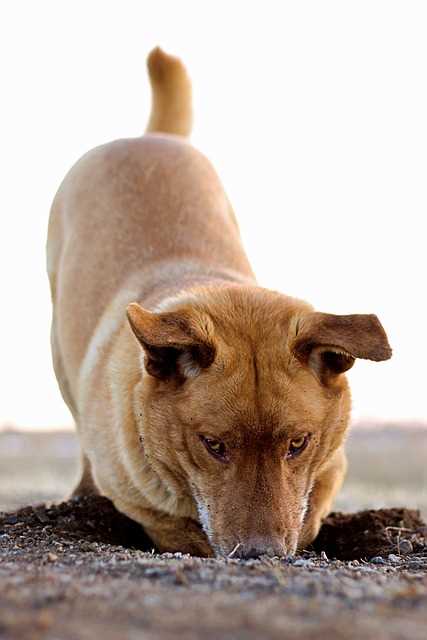
Dogs who dig can also get into plants and substances that can harm them or make them sick. If your Lab digs up the roots of flowers, such as oleander, or trees such as avocados, which are toxic to dogs, they can become very ill. This can result in a medical emergency for your pet and an expensive bill for you.
Labs are generally strong, athletic, and powerful dogs who can dig and force their way through and under fences. It’s important to get problem digging under control for the safety of your dog and your home environment.
There can be many reasons why your Labrador is digging, so here are several common causes of this unwanted behavior.
Frequent reasons for dog digging include:
- Boredom
- Playfulness/Fun
- Excessive Energy
- Desire to Bury an Object
- Trying to Chase Another Animal
- Wanting to Escape From An Area or Yard
- Looking for an Object
The temperament and personality of your particular dog will often give you clues to the reasons behind why your dog digs. Labrador Retrievers typically have a playful, energetic personality, and are intelligent dogs who are curious and seek a high level of mental stimulation.
If you have a Labrador that doesn’t receive enough exercise, interaction, or mental play, you might notice more of these types of problem behaviors, such as digging. You might also notice hyperactive behavior in your Lab or problem barking.
Leaving a Lab unattended in an outside space can also result in digging, especially if you have a fenced yard.
Labs are often curious and have a strong hunt drive. They may be drawn to smells, sounds, animals, or people located on the other side of fences, which then entice them to try to find a way out.
It’s important to talk with your vet about pet microchipping for your dog, especially if you have a Lab that’s prone to digging or trying to escape from their outdoor space.
Ways to Stop Unwanted Lab Digging
There are several strategies you can implement to try to curb your Labrador’s desire to dig.
1. Identify the Cause of Your Dog’s Digging
What behaviors do you notice in your Labrador before, during, and after an episode of digging? Looking at the list of causes above, are you able to identify what might be the reason (or reasons) that seem to be driving your dog’s urge to dig?
Start with recognizing your dog’s unique temperament and determining what the cause of your dog’s digging could be… whether it’s boredom, chasing something in your yard, or a need for more mental or physical stimulation.
2. Properly Supervise Your Dog (Inside & Outside)
Since most Lab digging behavior occurs outside, it’s really important to make sure that your outdoor space is safe and secure for your dog. It’s also necessary to supervise your dog outside, especially if there are any hazards that they can get themselves into if they are left unattended.
Many Lab owners are familiar with the impulsive behavior often seen in Labradors, and their amazingly high energy levels. Some dog breeds will not be as likely to find trouble in a yard when left unattended, but Labs aren’t one of those breeds!
We recommend you supervise your Lab outside, especially if they have shown you in the past that they are prone to digging behavior. It’s one of the reasons we don’t suggest that your Labrador be an outside-only dog.
We have a Lab that tries to dig when he sees an animal such as a raccoon, squirrel, deer, or rabbit. He begins to get worked up into a frenzy trying to dig to chase and retrieve the animal, and attempts to dig as a way to solve the problem of getting from where he’s located to where that prey animal is.
Having an awareness of what triggers your Lab’s desire to dig and working through solutions in your outdoor space is important in preventing digging behavior before it even starts.
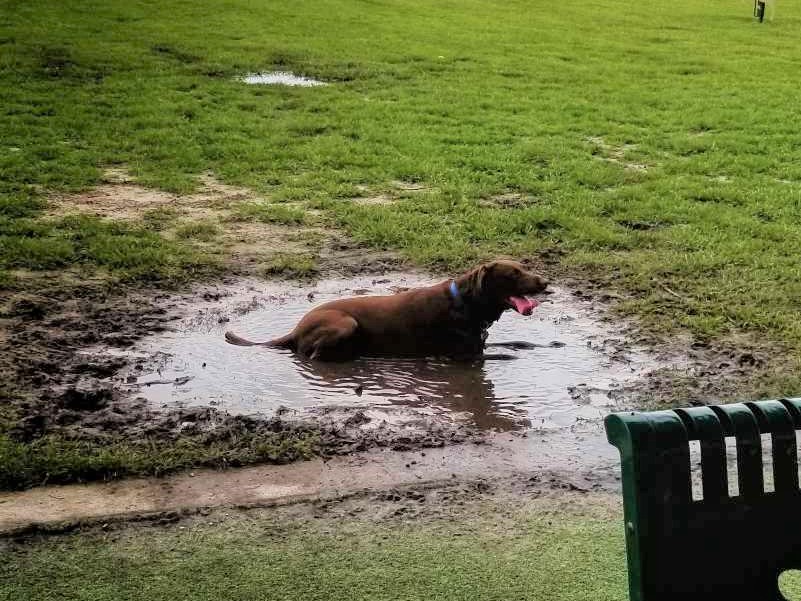
Inside your home, it’s also important to supervise your dog well, especially a curious Lab. Though Lab destruction on the inside is more usually seen in chewing behavior, you might see your Lab digging holes and shredding their bedding and soft surfaces like sofa cushions if they are left unsupervised.
Adequate supervision is critical to managing and preventing unwanted dog digging, especially with younger dogs and Lab puppies learning a daily routine.
If your Lab learns to think that digging is fun, it’s going to be much harder for you to correct this behavior as time goes on.
3. Exercise & Physical Activity
One helpful strategy in correcting Lab digging is to make sure that your dog is getting proper physical exercise daily and that their energy is finding a productive way out.
If not, you may see an increase in unwanted behavior from your dog, which can also include chewing, barking, destructive behaviors, and digging.
Make sure your Lab gets adequate walks and physical exercise, as well as playing games such as fetch and getting plenty of playtime with you. A tired Lab who’s had appropriate exercise will be less likely to dig out of boredom or trying to release their pent-up energy.
4. Provide the Right Toys & Play
Another effective way of correcting a dog digging problem is to give your Lab toys that provide mental focus and stimulation for a highly intelligent dog.
You can buy puzzle feeders, complex treat toys, and Kong toys that require your dog to do some “work” and put in energy and concentration to receive a reward.
Usually, these types of toys are a big hit with Labradors because they will occupy them for more than a few minutes. Labs also can be “power chewers” and sometimes typical dog toys become destroyed in a matter of a few minutes when given to a Labrador.
Providing a smart dog with a variety of toys such as those found in subscription toy services like Barkbox can be a way of switching things up to prevent boredom and keep your dog focused on something positive, rather than digging a hole for you that you didn’t really want.
If your dog is driven to dig to bury a particular type of toy, try removing that toy from their environment and replacing it with other types of toys to gauge how the digging behavior is affected.
Summary: Why Do Dogs Dig Holes?
If you’re struggling with your dog’s digging behavior, you’re not alone in the dog parent world. Many types of dogs demonstrate digging behavior, and it can be a common frustration for dog owners, especially Lab owners.
After you examine the possible causes behind what’s driving your dog to dig, make sure they are appropriately supervised and have an adequate outlet for physical and mental energy.
A happy, tired dog who’s had a good amount of fun and interaction with their family will be less likely to go looking to start trouble on their own!

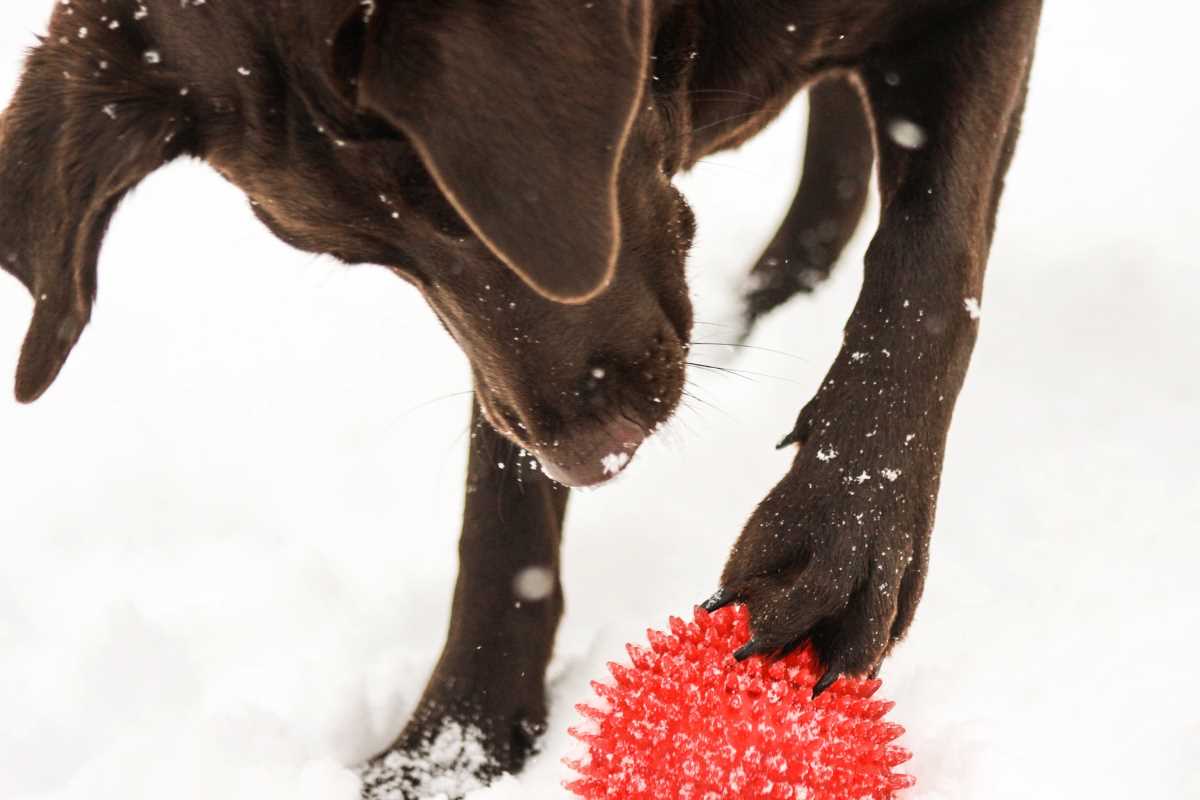

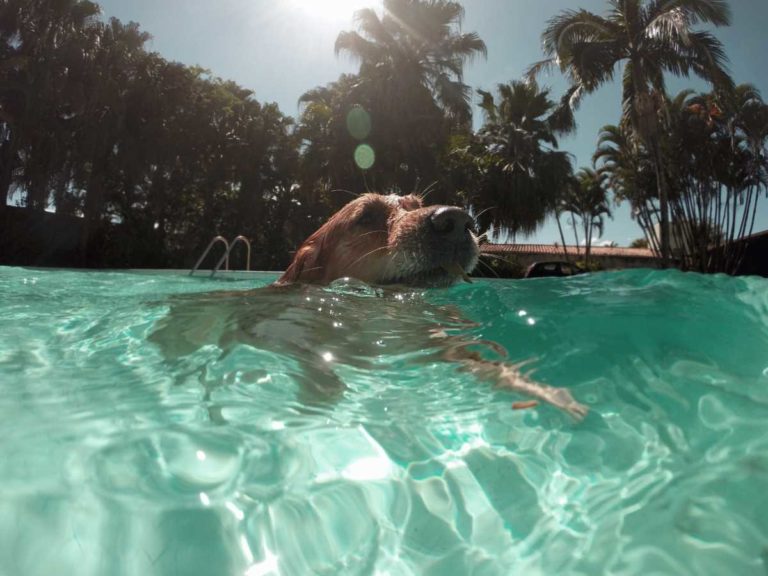
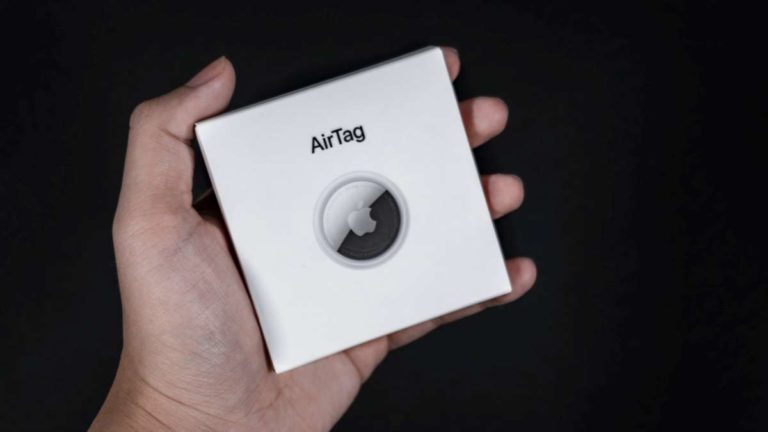
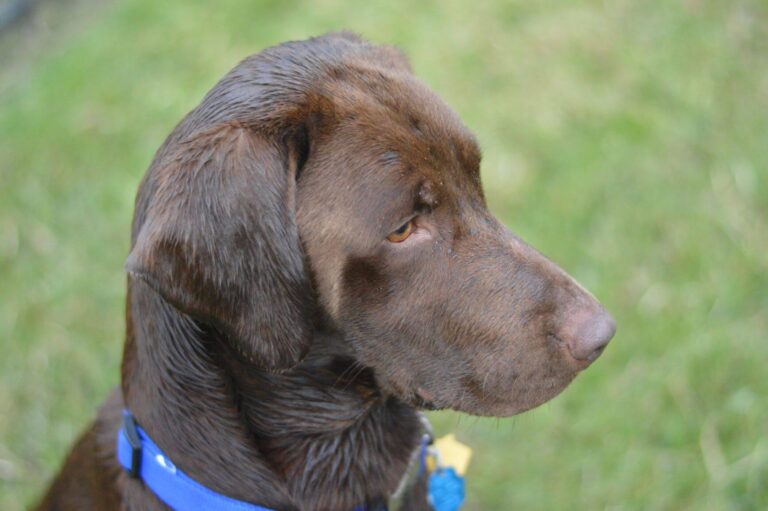
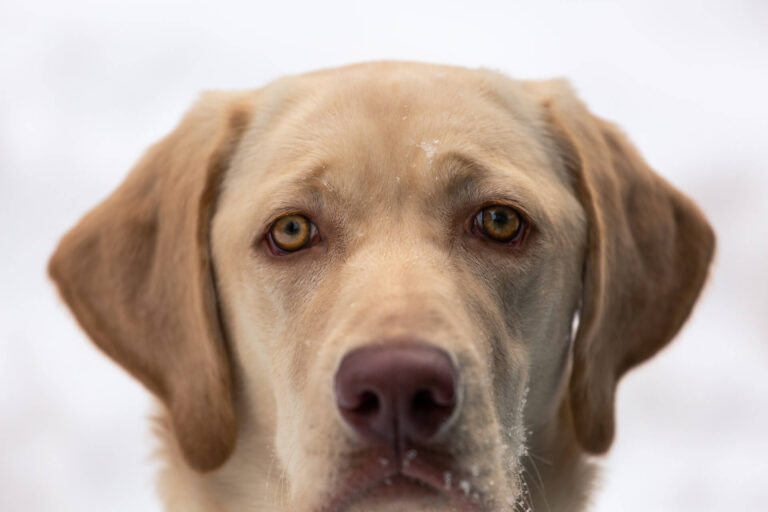
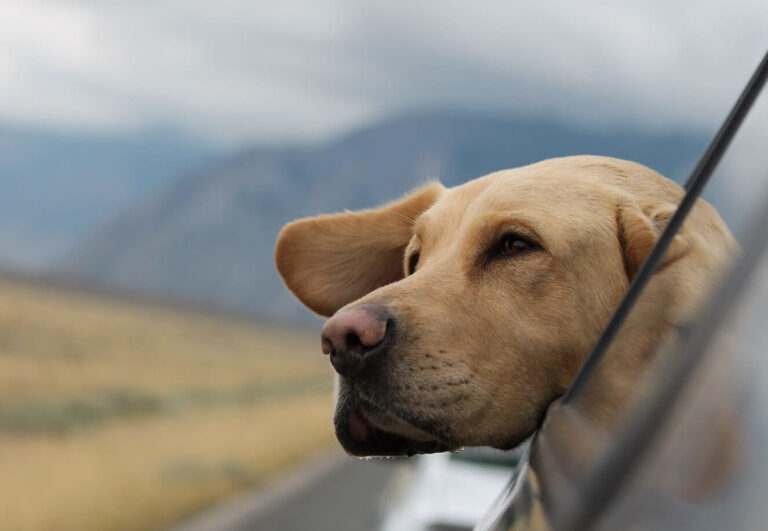
I love Labrador Retrievers. We had our Max for 13 years, just recently had to put him down. He got so much love and attention, everyone loved Max. I saw the doctor today, a routine visit, she said “You have to get another dog ASAP”. I can tell by talking to you, he brought your blood pressure down and was an extremely important part of your life. Losing a pet is devastating! I would love to find a Black Lab, female about 2 years young. Can you help me? I live in Amador County, CA. Seems I love dogs more than humans. Please help. Ruth Placek
Ruth, sorry to hear about the loss of your beloved Max! He sounds like he was an amazing boy! Have you spoken with the Lab Rescues yet in your area? They might be able to help you – it appears there is one in Fair Oaks for Central California: https://www.cc-labrescue.org/
They might also be able to recommend other resources for you if they can’t match you to what you’re hoping for. Best wishes for happiness in finding the next Lab in your life!